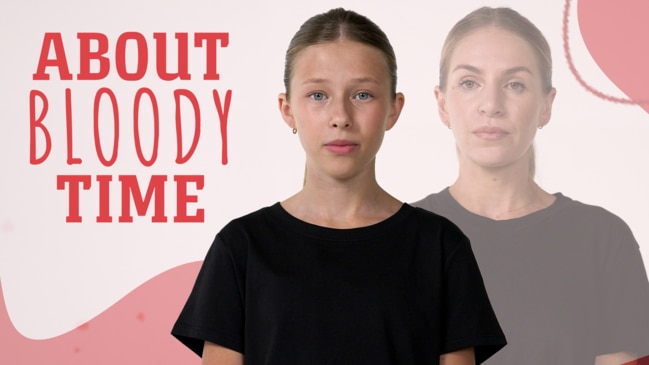Health Minister Mark Butler calls out treatment of women amid endometriosis campaign
The federal health minister has called out the shocking treatment of women suffering from endometriosis, saying “it’s time we stop telling women to just suck it up”.

Women are being “dismissed, called hysterical and accused of drug shopping” while battling endometriosis, the Health Minister Mark Butler says, insisting that the system has to change.
Welcoming news.com.au’s national campaign for a better deal for the estimated one in nine women suffering from endometriosis, Mr Butler said it was a conversation that needed to happen.
“Women are suffering unnecessarily. They’re having their experiences dismissed, being called hysterical and accused of drug shopping,” he told news.com.au. “Women’s pain is real and it’s time we stop telling women to just suck it up.”
Mr Butler stopped short of backing news.com.au’s call to boost Medicare rebates for gynaecological care – for now – as the Albanese Government considers new funding measures in the budget.
The About Bloody Time campaign argues the current system leaves women with two options: short consults that barely scratch the surface of their issues, or huge out-of-pocket expenses.

And it’s even worse in rural or regional areas, where it’s nearly impossible to get help.
News.com.au is campaigning for longer, Medicare-funded consultations for endometriosis diagnosis and treatment, so women can get the help they need, no matter where they live.
Mr Butler said that Labor had taken “drastic action” to support women with endometriosis since coming to office, including investing more than $58.3 million and creating a national suite of one-stop-shops for endometriosis care, intervention and treatment.
“We need more women and more doctors to know about endometriosis, so we can reduce the diagnosis delay and get women the care they need. This is why I welcome this campaign,” he said.
“Women are left to languish in pain for around seven to nine years – the average wait for an endometriosis diagnosis.”
The Federal Government’s package to better support women with endometriosis or pelvic pain includes:
• 22 specialised Endometriosis and Pelvic Pain Clinics around the country providing multidisciplinary care, access to early intervention and a range of treatment options
• Developing an endometriosis management plan for individualised and tailored treatment for women
• Support for endometriosis research
• Investing in grants to improve awareness of endometriosis in the community
• Developing endometriosis living guidelines so that healthcare professionals can be led by best practice, evidence-based information
• Reviewing the Medicare Benefits Schedule (MBS) and Pharmaceutical Benefits Scheme (PBS) items used to support the diagnosis and treatment of endometriosis.

Mr Butler said, as part of the package, the government had introduced a new extended 60-minute MBS item for GPs.
“This longer consultations will give GPs more time to better help women with endometriosis or other chronic conditions with complex histories and symptoms,” he said.
That item number can, in theory, be used by a gynaecologist. However, it’s only a slight increase on the existing item, bumping it up to $98.40 from $81.30. The gynaecologist would also need to spend the full 60 minutes with a patient to earn that sum.
Under the current structure, they could see three patients in that same time frame, for $81.30 per appointment ($243.90 in total), meaning the small increase in rebate for one person doesn’t solve the problem. A new item number, in line with Item Number 132 paid to other specialists, is needed.
Gynaecologists who treat pelvic pain are among the lowest paid specialists in Australia and accessing them is increasingly difficult. In rural or regional areas, it’s almost impossible.
The new Medicare Item Number that news.com.au is campaigning for is in line with what is paid to other specialists including gastroenterologists, cardiologists and neurologists. It would allow gynaecologists to offer better care, and attract more specialists to work in the field, lifting the standard of care nationwide.
Assistant Minister for Health and Aged Care Ged Kearney said she had a special focus on tackling women’s health issues in her portfolio.
“For too long, women have suffered in silence and their pain has not been taken seriously. I’ve travelled across the country to hear from women one-on-one about their harrowing experiences with endometriosis,” she said.
“Labor is acting to support these women with a $58 million investment for endometriosis care, intervention and treatment. It’s all about listening and acting to support women’s health.”
Ms Kearney said the investment also included a mentor program to support those newly diagnosed with endometriosis and implementing a Workplace Assistance Program to support employees and employers navigate discussions in the workplace.
It also includes access to a new Medicare-funded MRI scan to assist in the investigation of infertility for those with severe endometriosis and other conditions.

Pain physician, researcher and advocate Associate Professor Susan Evans said while support for GPs was “welcome”, it was inevitable women with endometriosis symptoms would still need to be referred to a gynaecologist.
“Many people with these conditions will require a gynaecologist, and Medicare is not supporting quality care,” Dr Evans said.
“It doesn’t support the time taken to listen to women, plan their care with them, and upskill in pelvic pain management.
“Those gynaecologists who wish to support women with pain are being asked to upskill to a more stressful life and lower income.
“A Medicare Item number to support longer appointments, reduce gap payments, and encourage more gynaecologists to work in this area is the single most important change.”
Australia’s eight state and territory health leaders have pressed the federal government for more to be done, with Victoria Health Minister Mary-Anne Thomas saying women were still having their health treated as a “niche” issue.
“The Albanese Government has already done a body of work towards improving women’s health, led by Assistant Minister Ged Kearney. But we know there is still a long way to go,” Minister Thomas said.
“Collectively, we can make a profound difference to the lives of so many women by making healthcare accessible, affordable, and comprehensive for every single woman in this country. The time to do this is now.”
Queensland Minister for Health and Women Shannon Fentiman also supported the push “to extend the Medicare-funding for longer gynaecological consults”, calling on her federal colleagues to “take up this chance to improve healthcare for all Australian women and girls.”
They were joined by health ministers from NSW, South Australia, Western Australia, Northern Territory and the ACT to back the About Bloody Time campaign initiative, with our call to action petition hitting more than 40,000 signatures as of Tuesday morning.
National Party leader David Littleproud suggested his party would commit to a policy supporting longer gynaecologist appointments, but urged the Prime Minister to “just commit to it” now.
“I just think this is a big issue that hopefully the prime minister can come back and say, let’s just do it,” Mr Littleproud said on Sunday.
“I think it’s so important. Let’s make those consults 45 minutes and let’s give the support to the gynaecologist to be able to do that.”






